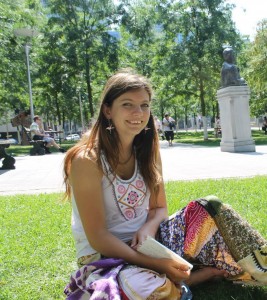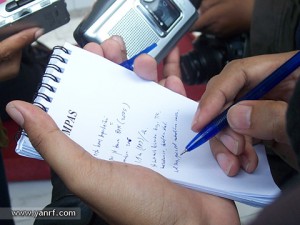To see the world in a
grain of sand”– William Blake, 1863
Why Ethnography?
http://www.slideshare.
Continue reading →
Data Analysis
Analysing your Data
There is no hard and fast line between ordering your data and analysing it. As you begin to order and index it, so the process of analysing starts. Analysing data is a continuing process from the moment you collect your first piece of data.
Continue reading →

Year Abroad Testimony: Claire
My name is Claire St John Eve and I am currently working as a project intern on the Ethnographic Encounters Project ...
Continue reading →
What is Ethnographic Research Abroad?
Overview of Ethnographic Research and Practices
...
Continue reading →
Transferable Skills & Research Methods
It is important to think about what skills you will develop during your year abroad research project when choosing what and how you will study – it is a large piece of independent work and is therefore something you can really sell to employers.
Continue reading →

Techniques for Ethnographic Conversations and Interviews
The techniques described below are based largely on James P. Spradley’s The Ethnographic Interview. This type of interviewing is particularly "kind" to interviewees, respects their rights, and attempts to see the world as they see it.
Continue reading →
One-to-one Interviewing
One-to-one interviewing is similar to the kinds of interviews conducted for studies in the social sciences, ...
Continue reading →

Year Abroad Testimony: Vicki
Church Communities
I went to Hessen, Germany. My topic was an in-depth ethnographic study into a church there, where I attempted to write about how the sense of community in the church had been built. This also led to me asking (and answering) why people come to and stay at the church.
Continue reading →
Ethnographic Conversations
Ethnographic Conversations are very informal interviews, very much led by the informant, who the ethnographer sees as being able to 'impart wisdom', rather than 'confirm hypotheses'.
Continue reading →

